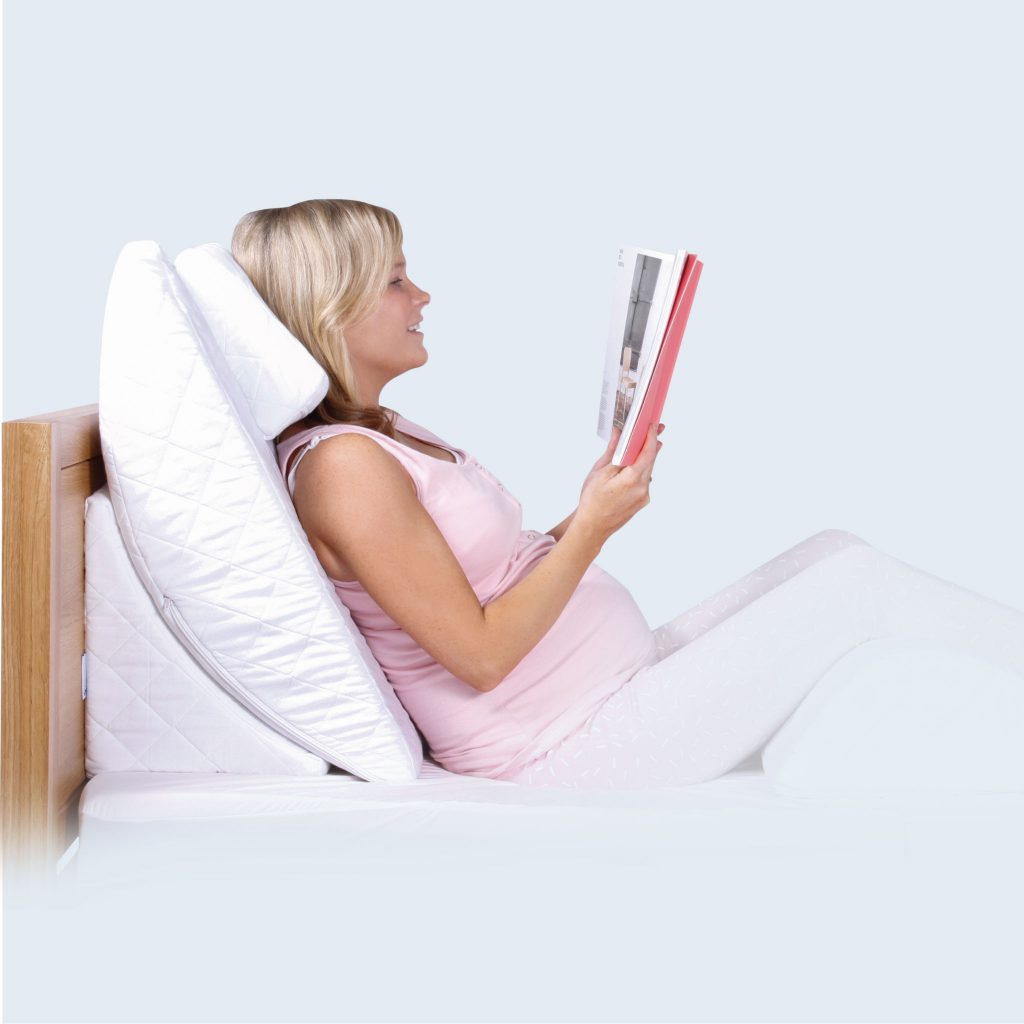Achieving a good night's sleep is about more than just banishing under-eye circles or improving your mood.
Rest and relaxation are crucial for your overall health, encompassing mental, emotional, and physical well-being.
Many people may not realise that their pillow could be the barrier between them and a proper night's sleep. The right cushioning can make all the difference in providing comfort, support, and peaceful slumber.
Emotional and Mental Benefits of Using the Right Pillow
The appropriate pillow can help you achieve the restful, rejuvenating sleep your body requires. While the ideal amount of sleep varies for each person, getting enough rest can aid memory retention, reduce inflammation, enhance creativity, and even promote longevity. When well-rested, you're more likely to start the day in a better mood and feel prepared to tackle daily challenges.
Consistently getting the right amount of sleep can lead to better physical health, a lower risk of injury (due to reduced fatigue-induced distractions), improved weight management, and increased mental clarity.
The perfect pillow can help you relax and unwind, allowing your body to drift off into a soothing slumber. It can correct your posture, alleviate back and neck pain, and provide support for tired feet or varicose veins.
Pillows for New Mothers and Babies
Being a new mum is challenging enough, and breastfeeding can add extra stress on both body and mind. Specially designed breastfeeding pillows can help position the baby correctly to ensure a good latch for feeding. These pillows are usually kidney bean-shaped, with a firm spot for the baby's head and softer cushioning for the body. An infant pillow angles the baby with its head slightly higher than its body, making positioning easier for nursing and helping the mother maintain an upright posture.
Correct posture can ease the neck and back pain common in breastfeeding mothers and support the baby's weight, reducing strain on the mother's arms and shoulders. The slight angle also helps the baby breathe more easily while nursing, as they are less likely to be overwhelmed by breast tissue if their head is tilted upward. If the mother is comfortable and the baby is latched on correctly, it can also aid the let-down reflex for nursing. A baby feeding pillow can also assist mothers who are bottle-feeding.
Breastfeeding pillows typically feature soft padding that can be adjusted to accommodate babies of various sizes and mothers with different waist dimensions. Many nursing pillows also come with removable covers for easy washing in case of spills or accidents. The unique shape of a baby feeding pillow can also support post-partum recovery, as the soft padding promotes correct posture, relieving lower back pain and avoiding chafing against any C-section scars.

Pillows for Proper Relaxation
Reading while sitting or lying in bed can be uncomfortable due to the challenge of finding the right pillow arrangement for your arms, back, and neck. A backrest pillow or wedge support allows you to sit upright in bed without being confined to one specific spot. These pillows resemble the top half of an armchair, featuring a high back and soft arm supports. They can be easily moved from room to room, bed to chair, or even floor to sofa.
Backrest pillows are also available in various styles and sizes, suitable for office chairs, promoting proper posture at work. Some back supports even incorporate magnetic therapy, which may help relieve pain, reduce muscle tension, and boost circulation. Lumbar supports, from full back support to small rolled padding, can help align your spine correctly and provide structure to your lumbar region. The portable size of these back supports enables easy use at the office, at home, or during long car trips or plane rides.
Pillow Talk for the Restless
The wide variety of pillows available means there is a cushion for every need. Whether you're a new mother seeking nursing aid, a teacher looking for lumbar support, or someone simply yearning for a restful slumber, the right pillow can help you achieve your goal of improving sleep quality.
Investing in the right pillow can significantly enhance the quality of your sleep, and sleeping time, support new mothers and their babies, and promote relaxation and comfort in various daily activities. By understanding the numerous types of pillows available and selecting one tailored to your specific needs, you can make a significant difference in your overall well-being and daily satisfaction.
Do you want to learn more? Read our Frequently Asked Questions for...
Contour pillows, also known as contoured pillows, are designed to provide better support and alignment for your head, neck, and shoulders while you sleep. These pillows are shaped with curves and contours that follow the natural curves of your body, allowing for a more comfortable and personalized sleeping experience.
The unique design of contour pillows offers several benefits. Firstly, they help to alleviate neck and shoulder pain by promoting proper spinal alignment. The contoured shape cradles your head and neck, reducing pressure points and ensuring that your spine remains in a neutral position throughout the night. Secondly, contour pillows can improve your overall sleep quality. By providing optimal support, they help to reduce tossing and turning, allowing you to enjoy a more restful and uninterrupted sleep.
Contour pillows, or contoured pillows, are indeed better for those seeking improved comfort and support during sleep. Their unique shape and design promote proper spinal alignment, alleviate neck and shoulder pain, and enhance overall sleep quality. If you are looking for a pillow that can provide personalized support and help you wake up feeling refreshed, a contour pillow may be the ideal choice for you.
 0
0 1
1Contour pillows are designed to provide better support and alignment for your head, neck, and shoulders while you sleep. Unlike traditional pillows, contour pillows have a unique shape that follows the natural curves of your body. This helps to reduce pressure points and promote proper spinal alignment, resulting in a more comfortable and restful sleep. The contoured design of these pillows can also help alleviate neck and shoulder pain, as well as reduce snoring and sleep apnea symptoms. Overall, contour pillows offer a more personalized and supportive sleep experience, making them a popular choice for those seeking improved comfort and sleep quality.
 0
0 0
0Contour pillows can be beneficial for individuals experiencing neck pain. These pillows are specifically designed to provide support and alignment to the neck and head, which can help alleviate discomfort. The unique shape of contour pillows helps to cradle the neck and promote proper spinal alignment, reducing strain on the neck muscles. By providing adequate support, contour pillows can help relieve tension and pressure, allowing the neck muscles to relax and recover during sleep. Many people find that using a contour pillow can improve their sleep quality and reduce neck pain, making it a suitable option for those seeking relief.
Contour pillows are designed to support the neck and promote proper spinal alignment, making them a good choice for individuals experiencing neck pain. These pillows can help alleviate discomfort by cradling the neck and reducing strain on the neck muscles. By providing adequate support, contour pillows can improve sleep quality and allow the neck muscles to relax and recover. If you suffer from neck pain, using a contour pillow may be worth considering to help alleviate your symptoms and improve your overall sleep experience.
 0
0 0
0Yes, contour pillows can be beneficial for side sleepers. These pillows are specifically designed to provide support and alignment to the head, neck, and shoulders, which is crucial for maintaining a proper sleeping posture. The unique shape of contour pillows, with a dip in the middle and raised edges, helps cradle the head and neck, promoting spinal alignment and reducing pressure points. This can alleviate discomfort and prevent the development of aches or stiffness that side sleepers may experience. By offering personalized support, contour pillows can enhance the quality of sleep for side sleepers, allowing them to wake up feeling refreshed and rejuvenated.
 1
1 0
0Yes, firm pillows can be beneficial for neck pain. When you sleep on a firm pillow, it provides better support to your neck and helps maintain proper alignment with your spine. This can alleviate strain on your neck muscles and reduce discomfort. Firm pillows are especially recommended for individuals who sleep on their back or side, as they help keep the head and neck in a neutral position throughout the night. However, it's important to note that the ideal pillow firmness may vary from person to person, so it's essential to find the right balance of support and comfort that works best for you.
 1
1 0
0








